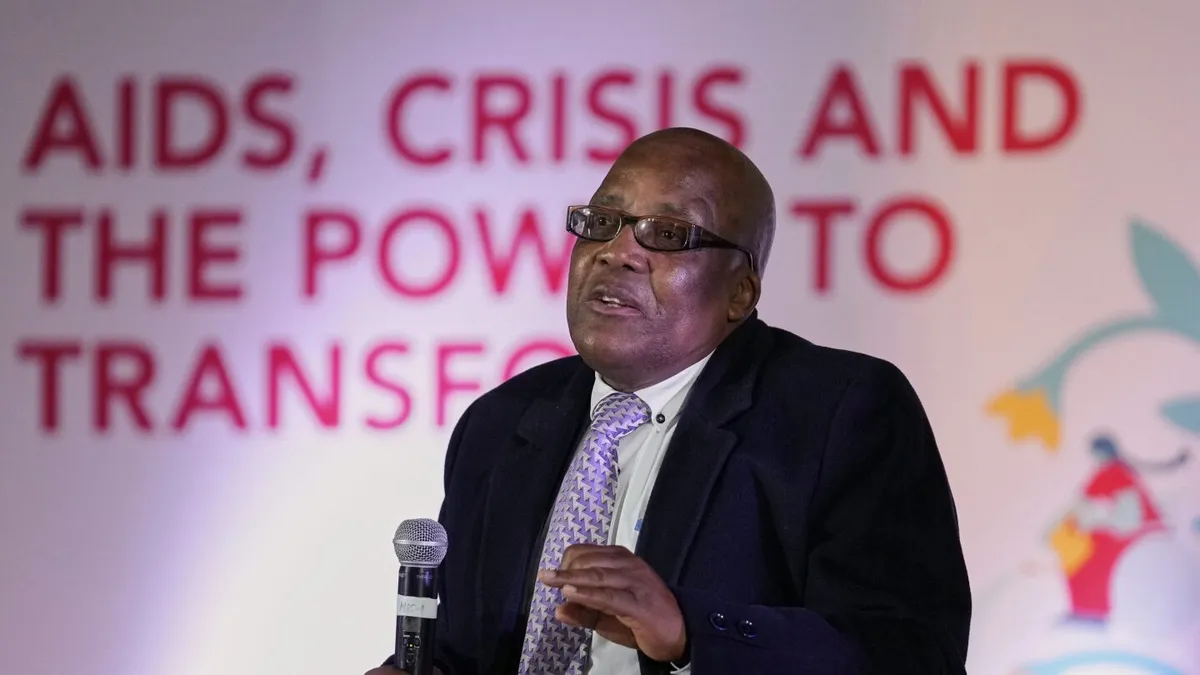
In recent years, significant American-led investment in AIDS programs has dramatically reduced the number of deaths caused by the disease to the lowest levels recorded in over three decades. This investment has also made life-saving medicines accessible to some of the world's most vulnerable populations. However, a sudden withdrawal of U.S. funding in the past six months has caused what U.N. officials describe as a “systemic shock.” Without immediate replacement of this funding, it is projected that more than 4 million AIDS-related deaths and 6 million additional HIV infections could occur by 2029.
UNAIDS has reported that the current wave of funding losses has destabilized vital supply chains, resulted in the closure of numerous health facilities, and left thousands of health clinics without adequate staffing. These cuts have severely set back prevention programs, disrupted HIV testing efforts, and forced many community organizations to reduce or completely halt their activities aimed at combating HIV. The report highlights a pressing need for renewed funding to prevent a reversal of decades of progress against AIDS worldwide.
UNAIDS has expressed fears that other major donors may also scale back their support, jeopardizing the strong multilateral cooperation that has been pivotal in the fight against AIDS. Compounding these issues are external factors like wars, geopolitical shifts, and climate change, which threaten to destabilize existing support systems further.
The abrupt disappearance of the $4 billion that the United States had pledged for the global HIV response by 2025 occurred almost overnight in January. This was triggered by former U.S. President Donald Trump’s order to suspend all foreign aid and subsequently shutter the U.S. AID agency. The President’s Emergency Plan for AIDS Relief, known as PEPFAR, was initiated in 2003 by President George W. Bush and represented the largest commitment by any country aimed at a single disease. UNAIDS has referred to PEPFAR as a “lifeline” for nations with high HIV rates, noting its support for testing 84.1 million individuals and providing treatment for 20.6 million, among various other initiatives.
According to UNAIDS, there were approximately 630,000 AIDS-related deaths globally in 2024, a figure that has remained stable since 2022 after peaking at around 2 million deaths in 2004. Even prior to the U.S. funding cuts, progress in controlling HIV was inconsistent, with half of all new infections occurring in sub-Saharan Africa. Tom Ellman from the charity Doctors Without Borders emphasized that while some poorer nations are beginning to self-fund their HIV programs, it remains impossible to bridge the funding gap left by the U.S. “There’s nothing we can do that will protect these countries from the sudden, vicious withdrawal of support from the U.S.,” he stated.
Another critical concern raised by experts is the potential loss of data. The U.S. has traditionally financed the majority of HIV surveillance activities in African nations, including the collection of hospital records and patient data. Dr. Chris Beyrer, director of the Global Health Institute at Duke University, warned that the abrupt cessation of this funding could make it incredibly challenging to track and combat the spread of HIV effectively.
Amidst this uncertainty, promising developments in HIV prevention have emerged. A new injectable treatment has shown 100% effectiveness in preventing the virus, with South Africa’s health minister, Aaron Motsoaledi, declaring a commitment to ensure that every adolescent girl who needs it will have access. This advancement follows the recent approval of the drug, named Yeztugo, by the U.S. Food and Drug Administration. Advocates like Peter Maybarduk from Public Citizen view this approval as a pivotal moment in the fight against the AIDS epidemic. However, concerns remain regarding the pricing, as many countries may find it financially prohibitive. Although Gilead has agreed to provide generic versions of Yeztugo in 120 low-income countries with high HIV rates, nearly all of Latin America has been excluded from this initiative.
As the fight against AIDS faces unprecedented challenges due to funding cuts and shifting geopolitical landscapes, advocates and health experts are urging a renewed commitment to support global HIV programs. “We could be ending AIDS,” Maybarduk asserted, “but instead, the U.S. is abandoning the fight.” The need for sustained and innovative approaches to combat HIV remains critical as the global community navigates this complex landscape.
For further insights into global health and development, the Associated Press Health and Science Department, with support from the Howard Hughes Medical Institute’s Department of Science Education and the Robert Wood Johnson Foundation, continues to provide comprehensive coverage. The AP is solely responsible for all content related to these vital issues.